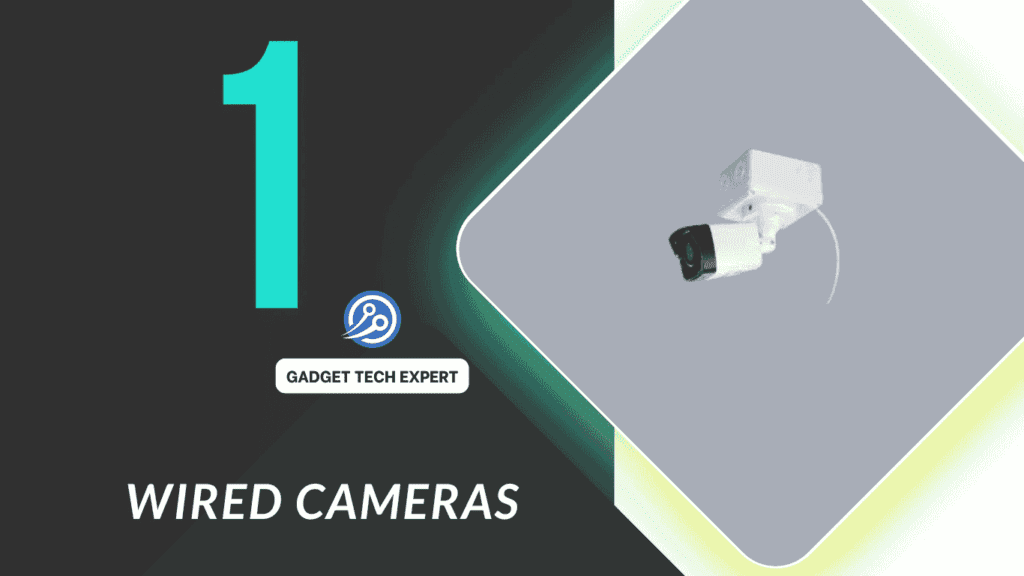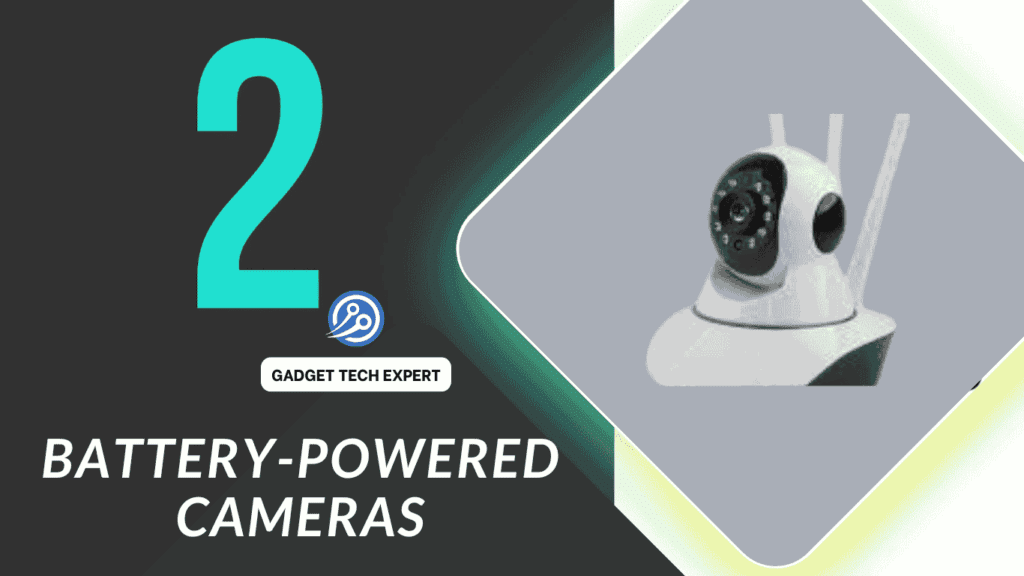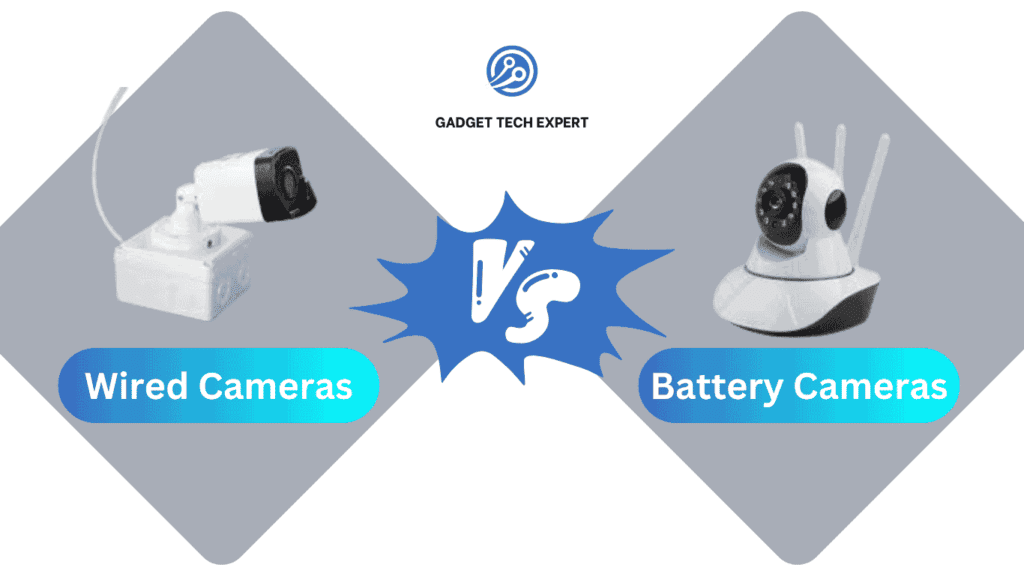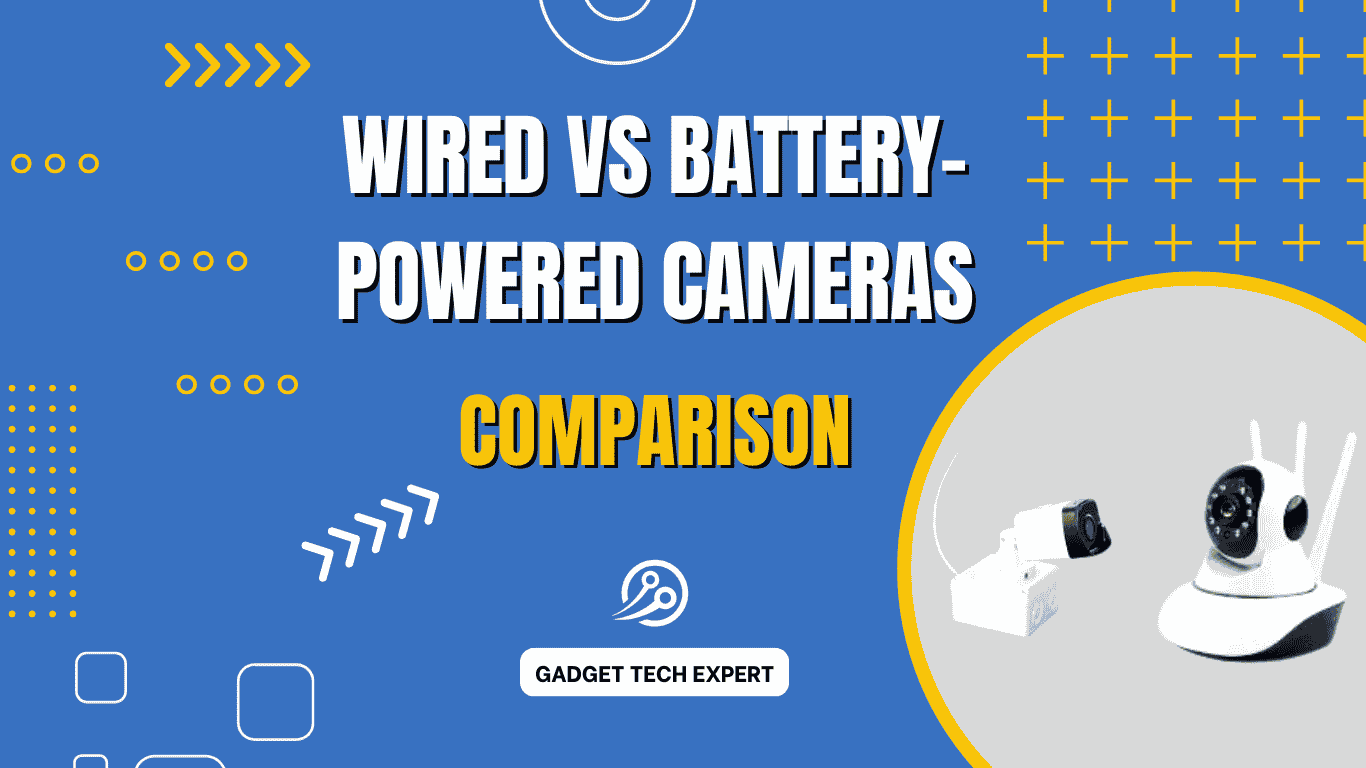In this article, we are going to compare a wired camera with a battery-powered one. Is the wired camera better for protecting your home? Is a battery-powered camera convenient in the long run, or does it become a hassle to change or charge the batteries? Let’s find out!
Introduction
WiFi cameras have become an essential part of home security, offering users the ability to monitor their property remotely. These cameras can be divided into two types: wired and battery-powered. Both have their advantages and disadvantages, but the primary difference lies in the way they are powered and how they detect and record motion. Let’s dive into the pros and cons of each to help you make a better-informed decision.
Wired Cameras

Wired cameras are typically plugged into a power outlet, providing a continuous power supply. Here are the main benefits:
Advantages:
- Continuous Power Supply: As wired cameras are always connected to an outlet, they can run continuously without worrying about battery life.
- Better Motion Detection: Most wired cameras use pixel-based motion detection, which monitors changes in the camera’s field of view, making them more reliable in detecting motion.
- Pre-Recording Feature: Because wired cameras are always on, they can buffer a few seconds of footage before motion is detected, ensuring that you capture the entire event.
- Longer Recording Time: Wired cameras can record for longer periods, usually offering continuous 24/7 recording without needing to worry about battery drainage.
Disadvantages:
- Installation Complexity: Wired cameras require careful planning for installation. You need to route wires and locate power outlets near the installation area.
- Vulnerable to Power Cut: If the power cord is cut, the camera can be disabled. However, you can take precautions to protect or hide the cables.
Battery-Powered Cameras

Battery-powered cameras offer the convenience of being wireless and portable, making them easier to install. Here’s what you need to know:
Advantages:
- Easy Installation: These cameras can be installed anywhere within the Wi-Fi range, as they don’t require a power outlet.
- Portable: Battery-powered cameras can be moved easily to different locations around your home, providing flexibility.
- Convenience: No need to worry about cables or power outlets during installation.
Disadvantages:
- Limited Detection Range: Battery cameras use PIR (Passive Infrared) sensors for motion detection, which has a limited range of around 30 feet. This may not be ideal for large areas.
- Shorter Recording Time: A battery-powered camera only records when motion is detected. They don’t record continuously, which means you could miss important events.
- Battery Life and Maintenance: Depending on the camera, the battery life may vary. You’ll need to replace or recharge the batteries every few months, which can become a hassle.
- Temperature Sensitivity: Batteries don’t perform well in extreme cold, so battery-powered cameras may not work effectively in colder climates.
Comparison Table

| Feature | Wired Cameras | Battery Cameras |
|---|---|---|
| Power Supply | Continuous (plugged in) | Limited (battery-powered) |
| Motion Detection | Pixel-based, continuous | PIR sensor, motion-triggered |
| Recording | 24/7 or continuous recording | Only when motion is detected |
| Installation | Requires outlet and wiring | Easy, no wires required |
| Maintenance | Low, no battery changes | High, requires battery changes or recharging |
| Temperature Performance | Stable in all climates | Struggles in cold climates |
| Cost | Generally higher initial cost | Lower initial cost, but may need more maintenance |
Pros and Cons
Wired Cameras:
- Pros:
- Continuous recording
- More reliable motion detection
- Pre-recording feature
- No need to worry about battery life
- Cons:
- Installation can be more complex
- Vulnerable to power cuts
Battery Cameras:
- Pros:
- Easy to install anywhere
- Wireless, portable
- No power outlet needed
- Cons:
- Limited recording time
- Maintenance required (battery replacement)
- Less reliable in extreme temperatures
Related Article:
Conclusion
If you are looking for a camera that provides continuous surveillance with minimal maintenance, a wired camera is the better option. Wired cameras are more reliable, offer longer recording times, and are less impacted by temperature changes. However, if you value easy installation and flexibility, a battery-powered camera could be a good choice, but keep in mind the maintenance requirements and limitations on motion detection and recording time.
FAQs
Can I use a battery-powered camera indoors?
Yes, battery-powered cameras are great for indoor use where power outlets may be hard to reach.
Do wired cameras require a lot of maintenance?
No, wired cameras require very little maintenance compared to battery-powered cameras.
How long do the batteries last in a battery-powered camera?
Battery life can vary depending on the brand and usage, but generally, you’ll need to recharge or replace the batteries every 2-6 months.
Can battery-powered cameras work in cold climates?
Battery-powered cameras can struggle in extremely cold temperatures as the batteries lose efficiency. It’s recommended to use wired cameras in colder climates.
I hope this comparison helps you in deciding between a wired or battery-powered camera for your security needs!
You May Also Be Interested In:
Passionate tech blogger sharing practical tips and solutions about Security cameras and smart gadgets. With a focus on user-friendly guides, Hassan simplifies tech for everyone. Connect with me for more insights!





